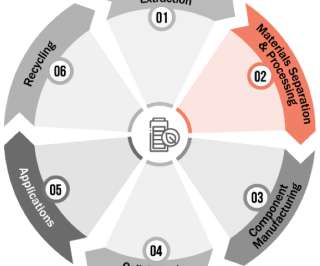DOE awarding $1.6B to 11 battery materials separation and processing projects as part of $2.8B funding
Green Car Congress
OCTOBER 20, 2022
NAM will deploy its advanced, cost effective and environmentally friendly process technology to provide a ~60% reduction in carbon intensity relative to the traditional Chinese synthetic graphite. Albemarle is finalizing the site selection for the lithium hydroxide conversion plant in the southeastern United States.












Let's personalize your content